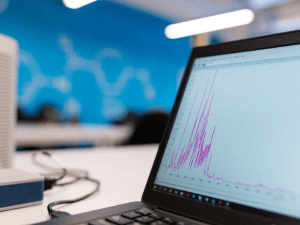Why Should You Care About Data Analytics?
Let’s be clear: if you’re running a small business in 2023 and you’re not utilizing data analytics, your business is going to seriously struggle.
Gone are the days where relying on gut instinct alone and “winging it” could sustain your business. Today’s hyper-competitive small business landscape demands that you arm yourself with every tool at your disposal.
And in the modern age, data is king.
Data analytics provides what I’d call “decision support systems” to small businesses.
These systems analyze the mountains of data about your customers’ behavior both on and off your website to provide tailored, actionable business insights.
We’re talking everything from what specific products your customers are engaging with to where your site’s navigation falters in the customer journey and what days of the week see the most sales.
With data analytics, every business hypothesis becomes testable. You remove much of the risk and guesswork from crucial business decisions.
Simply put, data analytics levels the playing field between small businesses and their much larger competitors.
The data helps the little guys and gals “think big” and make smarter decisions that you’d expect from an enterprise-level corporation.
Ignore these tools at your own peril.
Keeping Up with What Customers Want
Data analytics excels at decoding the customer mindset through their digital body language.
By aggregating customer behaviors across your site, data analytics can tell you which content resonates most with your audience and which falls flat.
You can validate assumptions about your best-performing products and gain invaluable insight into rising stars that may deserve more marketing attention based on budding customer interest.
As a simple example, say your small business sells specialized outdoor gear online.
Your data reveals that a recently added line of cold weather gloves sees rising traffic and engagement, while interest in your premium tents has unexpectedly tapered off.
Thanks to the analysis, you can confidently order more gloves to meet demand while reassessing how to better market the once popular tents.
Voila – with data, staying ahead of ever-changing customer preferences becomes far less guesswork.
Predicting the Future to Reduce Risk and Grow Smartly
Data analytics excels at finding signals within the noise. With enough quality traffic data over time, customer behavior coalesces into trends, cycles, and correlations that better predict outcomes.
As a business owner, you can forecast with far greater confidence how proposed changes may fare based on analogous past events.
Consider seasonality – something all small businesses must tackle.
Pinpointing the start, peak, and tail-off of key seasons can optimize everything from staffing to supply chain management to promotional calendars.
By testing and learning from the data of previous years, businesses shrink the slice of the revenue pie left to chance.
The same principle applies for things like new product launches, pricing tests, targeted marketing campaigns, etc.
The data helps model different scenarios to always make the smartest next step.
Make Decisions Based on Facts, Not Just Feelings
At the end of the day, even the most experienced and passionate small business owners must swallow a tough pill – our guts often lie to us.
Human cognition didn’t evolve to accurately gauge complex modern business systems. Mental shortcuts and emotional biases constantly undermine our judgment.
This is why becoming fluent in data analytics is mandatory.
We must augment our natural instincts and intuition with irrefutable data and analytics.
Particularly for mission-critical decisions, we must welcome the unemotional truths and insights that data provides.
The corner grocery store owner may have opened up shop based on little more than a dream, optimism, and long hours.
But utilizing data analytics is what will actually take the business to the next level, despite what the owner’s gut may tell them.
Like it or not, that’s the new data-first reality. Only the businesses that embrace it will prevail.





